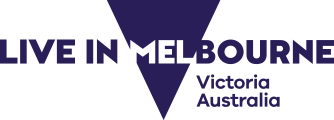Here you’ll find the information on salary, tax and retirement savings (superannuation) that you need to start your new life or business in Melbourne.
Get help setting up your finances
To help you set up and manage your financial obligations (including Australian tax, retirement savings / superannuation and banking) you may want to get advice from a financial planner or accountant who understands Australian laws.
Visit these websites to get help setting up your finances in Melbourne:
- Business.gov.au – essential information on planning, starting and growing your business in Australia
- CPA Australia – find an accountant on the CPA Australia website.
Earning your salary (or wage) in Melbourne
Salaries and wages vary for different jobs in Melbourne.
You can find information on salaries and wages online:
Equal opportunity and fair work
The Australian minimum wage is set by the Fair Work Commission.
Visit the Commonwealth Government’s Fair Work Ombudsman website to learn more about:
- minimum rates of pay and working conditions in your industry sector
- workplace rights
- legislation and publications related to the Australian workplace.
To find out more about Victoria’s workplace rights and rules, visit the Victorian Equal Opportunity & Human Rights Commission website.
Business and company taxation
Company tax rates vary slightly depending on the size and type of a business. The Australian Taxation Office lists all of our current company tax rates.
Australian business number (ABN)
To run a business in Australia, you will need an Australian business number (ABN). This is a unique number that identifies your business or organisation and is provided free of charge when you register with the Australian Business Register.
Once you have your Australian business number, you need to register with the Australian Taxation Office for certain Australian tax payments. These can include:
- Goods and Services Tax (GST)
- Fringe Benefits Tax (FBT)
- Pay As You Go (PAYG) withholding
- payroll tax.
The Australian financial year runs from 1 July to 30 June. Introductory information about business taxation is available from the Australian Taxation Office.
Personal income taxation
Australian residents are generally taxed on their worldwide income from all sources.
Your residency status is important in determining your individual taxation rate. Residency is determined on your income circumstances.
You can assess your residency status for taxation purposes through the Australian Taxation Office residency page.
The Australian Taxation Office website also includes resources in up to 35 languages, to help you prepare and lodge your tax return.
Translated resources can be accessed via the ATO's Tax Time Resources.
Some popular translated resources include:
- The myGov account creation guide.
- Guides to help you learn about expenses you can claim a deduction for in your occupation or industry via the ATO’s Occupation Guides.
Audio guides/videos (translated):
- Help for your first tax time is available via the ATO's multilingual First Tax Time Help audio guide.
- Guides to help you learn about tax and super are available in-language via ATO's Tax and Super audio guides.
- You can keep updated with tax and super information about lodging your tax return, starting a small business, staying safe from scams, and more through the ATO's In-language podcasts.
Additional tax time support:
- Free Tax Help Program helps eligible people earning $60,000 or less lodge their tax return online.
- Help for people who may not be able to afford professional advice and representation for their tax affairs can be accessed via the National Tax Clinic Program.
Tax file number
Your tax file number (TFN) is your unique personal reference number in Australia’s tax and superannuation systems. Anybody who earns money in Australia must have a TFN. Securing a TFN should be one of the first steps you take when planning a move to Melbourne to ensure you can earn your wage. It is also important to provide your bank with your TFN when opening a bank account, as this will reduce fees and charges.
You can apply for a TFN online in just minutes.
Securing a TFN should be one of the first steps you take when planning a move to Melbourne to ensure you can earn your wage.
Compulsory retirement savings – superannuation
Australia has a compulsory retirement savings scheme known as superannuation (or ‘super’ for short). All employers are required to pay their employees an additional 9.5 per cent of their wages into an approved superannuation fund.
Read more about superannuation on the Australian Taxation Office website.
| Useful websites | |
| Australian Securities and Investments Commission | Financial guidance for businesses and consumers developed by Australia’s corporate, markets and financial services regulator. |
| MoneySmart | Free and impartial financial guidance and tools. |
| Business Victoria | Information and support on setting up a business in Victoria. |
| Australian Business Register | How to register a business in Australia. |
| Australian Tax Office | A range of online tax services for Australian businesses. |
